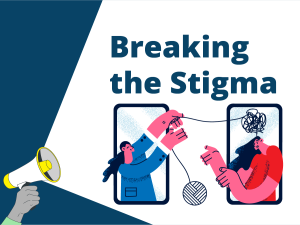For far too long, mental health struggles have been shrouded in stigma and judgment. The dominant narrative often revolves around “blame” – implying weakness or personal failing. This approach creates a barrier for those seeking help and fosters feelings of shame and isolation.
It’s time for a shift. We need to move from a narrative of blame to one of compassion and understanding.
Here’s why:
- Blame is unhelpful: It doesn’t address the root cause of mental health issues, which can be complex and influenced by various factors like genetics, brain chemistry, and life experiences.
- Compassion fosters healing: When we approach mental health with empathy, it creates a safe space for individuals to open up and seek the support they need.
- Understanding empowers: By asking “what happened” instead of “what’s wrong,” we acknowledge the potential presence of underlying experiences that may be contributing to the struggle. This empowers individuals to explore their experiences and find healthy coping mechanisms.
Simple yet Powerful:
A seemingly small change in our language can have a significant impact. Instead of asking “What’s wrong with you?” which can feel accusatory, we can ask “What happened?” This shift fosters a sense of curiosity and opens the door to a more supportive conversation.
Building a More Compassionate World
By reframing the narrative around mental health, we can create a world where individuals feel comfortable seeking help and have access to the resources they need to thrive. Here are some ways you can contribute:
- Educate yourself: Learn about different mental health conditions and their impact on individuals.
- Challenge stigma: Speak out against misconceptions surrounding mental health.
- Practice empathy: Listen actively and offer support to those struggling.
Let’s break down the walls of blame and build a world where mental health is met with understanding and compassion.









